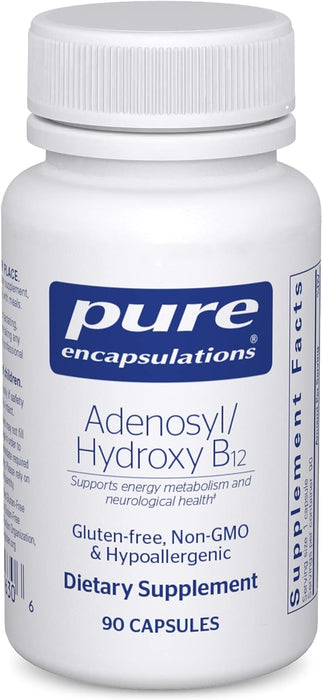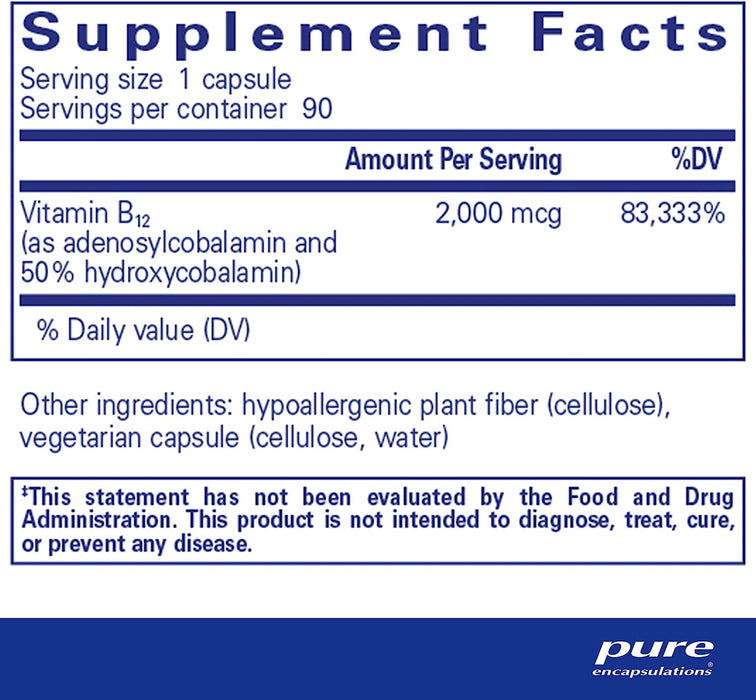
Blend of unmethylated B12 forms to promote nerve and mitochondrial health
Adenosyl/Hydroxy B12 combines two active forms of vitamin B12 — adenosylcobalamin and hydroxocobalamin — for a unique formula that supports energy, mood, focus, and nerve health.
Contains: 90 capsules, enough for 90 servings
There are four types of B12 (“cobalamin”) you often see in supplements:
- Cyanobalamin: synthetic version; used least efficiently by the body
- Methylcobalamin: an active form (meaning that it is ready to be used by the body) of B12 that supports the methylation process
- Adenosylcobalamin: another active form of B12 that primarily supports mitochondrial function and metabolism
- Hydroxocobalamin: the predominant form of B12 found in foods, a precursor to the active forms of B12
Hydroxycobalamin is a precursor form of vitamin B12 converted in the body to both methylcobalamin and adenosylcobalamin. It is similar to cyanocobalamin without the cyanide moiety. Adenosylcobalamin is an activated form similar to methylcobalamin.
Nerve and Mitochondrial Health:
While methylcobalamin is found in the cytosol of cells and predominates in blood and other fluids, adenosylcobalamin is the major form of vitamin B12 stored in the mitochondria of cellular tissues. It is a key cofactor in carbohydrate metabolism for the enzyme methylmalonyl-CoA mutase used to produce succinyl-CoA. Optimal levels also support the healthy synthesis of neuronal myelin.*
What are the benefits of Vitamin B12?
- Nerve health and protection: vitamin B12 is required for the body to produce and maintain the myelin sheath, the fatty protective layer that insulates nerves.
- Reduces homocysteine: the amino acid homocysteine may contribute to chronic diseases when too concentrated in the blood, including cardiovascular disease; the body needs adequate B12 to convert homocysteine into a form that the body can use.
- DNA republication: without enough B12, bone marrow cannot produce enough DNA to produce white blood cells, affecting susceptibility to infection
- Supports cell and tissue growth
- Stabilizes cell membranes, allowing hormones to be used in the cells rather than staying in the bloodstream
- Needed for the body to produce healthy red blood cells
- Plays a key role in the Krebs Cycle for proper metabolism
- Helps to maintain a balanced immune system





